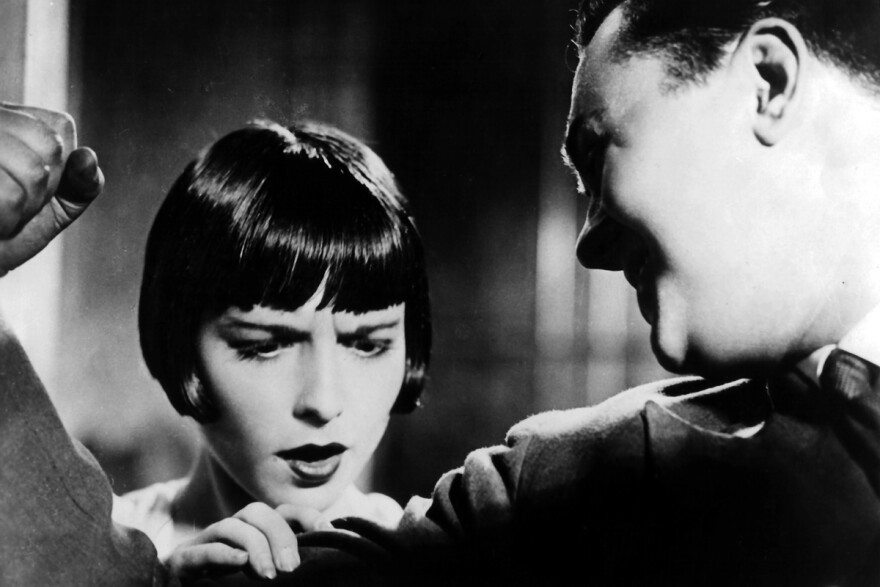It's rare for a commercial movie theater to show a silent film, and even more rare that the film will be shown with live music. But Saturday, Feb. 21, at the Alamo Draft House in Littleton, one of the most beautiful – and lurid – movies of the silent period, Pandora's Box, will screen on actual 35mm film accompanied by a young musician and composer Paul Buscarello.
The film was made in Germany by G.W. Pabst, one of the fine directors of the German Expressionist cinema and is about a sexpot in Berlin who drives men, and at least one woman, well beyond distraction. Lulu is played by an American actress named Louise Brooks whose performance made her a legend. She wears her jet black hair like a helmet in a sharp bob with bangs. The hair alone is unforgettable and Brooks moves with alarming energy. The other characters – a lot of middle-aged men – are slow and ponderous. They look like they're either thinking about what to do next or they're afraid of what to do next. But Brooks bounces around like a schoolgirl. She jumps and runs, and while the others seem rumpled and frumpy, Lulu is precise and stylish, and it's all sex.
Lulu is not a vamp; she doesn't slink around the film with overloaded bedroom eyes. Lulu is just more alive than anyone else. Her face is broad and open; she laughs, flashes a smile at all the right times as well as all the wrong times. She doesn't give a damn about social proprieties. She's self-contained and self-determining. She ruins the reputation of one of her distinguished lovers, and then marries him. At the wedding reception, Lulu dances with another woman, and drives the rest of the guests crazy because her physical moves with the woman are as sensual as they are with men.
This consuming sensuality is all done without speech, through Louise Brooks' gestures and her postures.
http://youtu.be/E-g6XflXxqk
German expressionist film comes from the late nineteen-teens and into the '20s, which was a tumultuous and disturbing time in Germany. It's roughly the same volatile and dangerous period that's shown in the musical Cabaret. The films of the time led to film noir in America after World War II – lots of shadows, fragmented light, streets that lead nowhere and characters who can't find themselves. Pandora's Box is full of scenes of gambling or parties, with lots of people milling around. Director G.W. Pabst has characters crossing the screen, bumping into each other, walking around each other. Characters, mostly men, look greasy and disheveled and predatory; they're driven by all sorts of desires and greed, and the society feels horribly unsettled and exploitive.
But Pabst films Lulu as the one coherent element in the film. The world is disturbed, and Lulu is utterly faithless in her dealings with people – mostly men – but she hides nothing. Shadows dominate the movie, but Lulu is mostly out of the shadows with full light on her face. She is clear and stable, and she comes as a relief from the jumpy crowd scenes. Lulu is like a life raft for people in a shipwreck – but, of course, that's a mirage.
Silent film doesn't lack sound; filmmakers of the time didn't lament the absence of sound any more than painters wish their characters could talk. The silence in Pandora's Box allows for implications and suggestions. No one takes off their clothes in Pandora's Box, but the picture reeks of sexuality. Good filmmakers will tell you that there's nothing they can put on screen that can rival what's in the hearts and minds of viewers; the job of filmmakers is to get you into your own fantasies and desires and imaginings. Pandora's Box does just that.
Louise Brooks and G.W. Pabst give just enough to make you understand, to make you feel, how characters lose themselves over Lulu. She's the one clear and open figure in a life that's disfigured and distorted.







